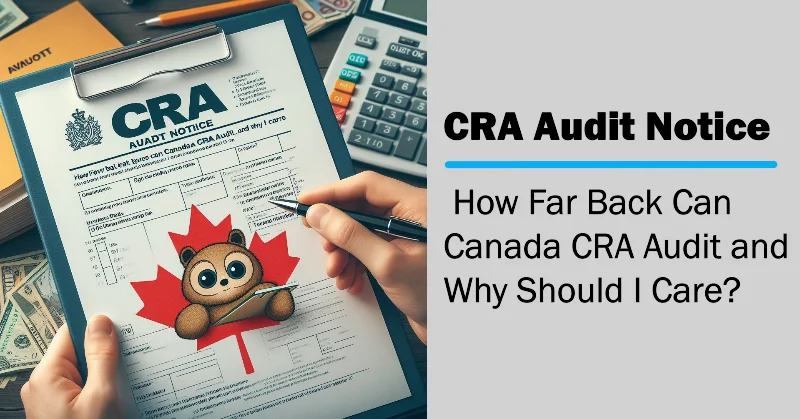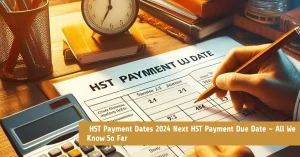For Advertising Contact Us
CRA Audit Notice – How Far Back Can Canada CRA Audit and Why Should I Care?

With Canada Revenue Agency (CRA) audits becoming increasingly common, it’s crucial to understand how far back CRA can audit your finances and why this information is vital. The CRA has the authority to audit individuals and businesses for up to seven years, with the potential to go further under certain circumstances. Failing to comply with CRA reporting requirements or tax obligations can result in severe penalties, fines, and even criminal charges. Therefore, knowing the extent of CRA’s auditing capabilities and timelines is imperative for maintaining compliance and avoiding legal consequences.
Scope of CRA Audits
Understanding the Normal Reassessment Period
For taxpayers in Canada, it is crucial to understand the normal reassessment period that the Canada Revenue Agency (CRA) follows for auditing tax returns. The normal reassessment period allows the CRA to go back and review your tax filings for a specific timeframe to ensure compliance with tax laws and regulations.
Exceptional Circumstances Extending the Audit Period
To safeguard taxpayers and the integrity of the tax system, the CRA can extend the audit period beyond the normal reassessment period under exceptional circumstances. This extension may occur if there are suspicions of fraud, deliberate omission of income, or other serious tax offenses that require further investigation.
Circumstances such as fraud, evasion, or misrepresentation of income can trigger an extension of the audit period by the CRA. In such cases, the CRA has the authority to examine deeper into past tax filings beyond the typical reassessment period to uncover any discrepancies or illegal activities.
Triggers of a CRA Audit
Common Red Flags for CRA Audits
One common trigger for a CRA audit is discrepancies in reported income. If your reported income on your tax return does not match the information the CRA has on file, it can raise a red flag and lead to an audit. Additionally, large deductions or expenses that are out of the ordinary for your income level or industry can also attract the attention of the CRA.
How to Minimize the Risk of Being Audited
The best way to minimize the risk of being audited by the CRA is to ensure that your tax return is accurate and that all income is reported correctly. Keeping detailed records and receipts to support your income and expenses is crucial in case of an audit. Additionally, seeking professional advice from a tax professional can help ensure that your tax return is filed correctly and minimize any potential red flags that may trigger an audit.
Another important step to minimize the risk of being audited by the CRA is to be transparent and cooperative if you are selected for an audit. Being honest and providing all requested documentation in a timely manner can help expedite the audit process and demonstrate your willingness to comply with the CRA’s requirements.
Process of a CRA Audit
What to Expect During an Audit
Audit notices from the Canada Revenue Agency (CRA) can be anxiety-inducing, but knowing what to expect can help alleviate some of the stress. During a CRA audit, the CRA will review your financial records, receipts, and other relevant documents to ensure that your reported income and expenses are accurate. They may also conduct interviews with you or your representatives to gather more information about your tax situation. It is crucial to be prepared, organized, and transparent during the audit process to avoid any penalties or further scrutiny.
Responding to the CRA Audit Notice
Receiving a CRA audit notice can be daunting, but knowing how to respond can make a significant difference in the outcome of the audit. It is important to act promptly and cooperate fully with the CRA by providing all requested documents and information in a timely manner. If you need more time to gather the necessary records, communicate this with the CRA and request an extension. Failure to respond or provide the requested information can result in penalties and further investigation by the CRA.
Consequences of CRA Audits
Potential Penalties and Interest
After receiving a CRA audit notice, one of the major concerns for taxpayers is the potential penalties and interest that may be imposed if discrepancies are found in their tax returns. Penalties can range from a percentage of the taxes owed to criminal charges in cases of tax evasion. Additionally, interest will accrue on any outstanding amounts, compounding the financial burden on the taxpayer.
How to Appeal an Unfavorable Audit Decision
On the bright side, taxpayers have the right to appeal an unfavorable audit decision by the CRA. The appeals process involves submitting a Notice of Objection within 90 days of receiving the assessment. The taxpayer can present additional evidence to support their position and work towards reaching a resolution with the CRA.
Plus, it’s important to note that seeking professional assistance from tax experts or accountants can greatly enhance the chances of a successful appeal. Having a skilled professional on your side can navigate the complexities of the tax system and present a strong case on your behalf to the CRA.
Preventative Measures and Compliance
Best Practices for Record Keeping
Practices for maintaining accurate and organized records are crucial to withstand a CRA audit. Keep detailed financial records, receipts, invoices, and bank statements for at least six years. Utilize accounting software or hire a professional bookkeeper to ensure proper documentation and record-keeping.
Proactive Strategies to Maintain CRA Compliance
Proactive measures are necessary to avoid potential audit triggers and ensure compliance with CRA regulations. Regularly review and update your financial records, promptly file tax returns, and communicate openly with CRA officials if there are any discrepancies. Implement robust internal controls and seek professional advice to navigate complex tax laws effectively.
Plus, conduct regular internal audits to identify and address any inconsistencies before they come under CRA scrutiny. By demonstrating a proactive approach to compliance, you can mitigate potential risks and avoid penalties and fines.
To wrap up
Now that you understand how far back the Canada CRA can audit and why this information is crucial for taxpayers, it is imperative to stay informed and compliant with tax laws. By being prepared and keeping accurate records for up to seven years, you can minimize the risk of facing penalties or fines during a CRA audit. Bear in mind, it is your responsibility as a taxpayer to ensure that your tax returns are accurate and complete. Stay proactive and seek professional advice if needed to navigate any potential audits successfully.



